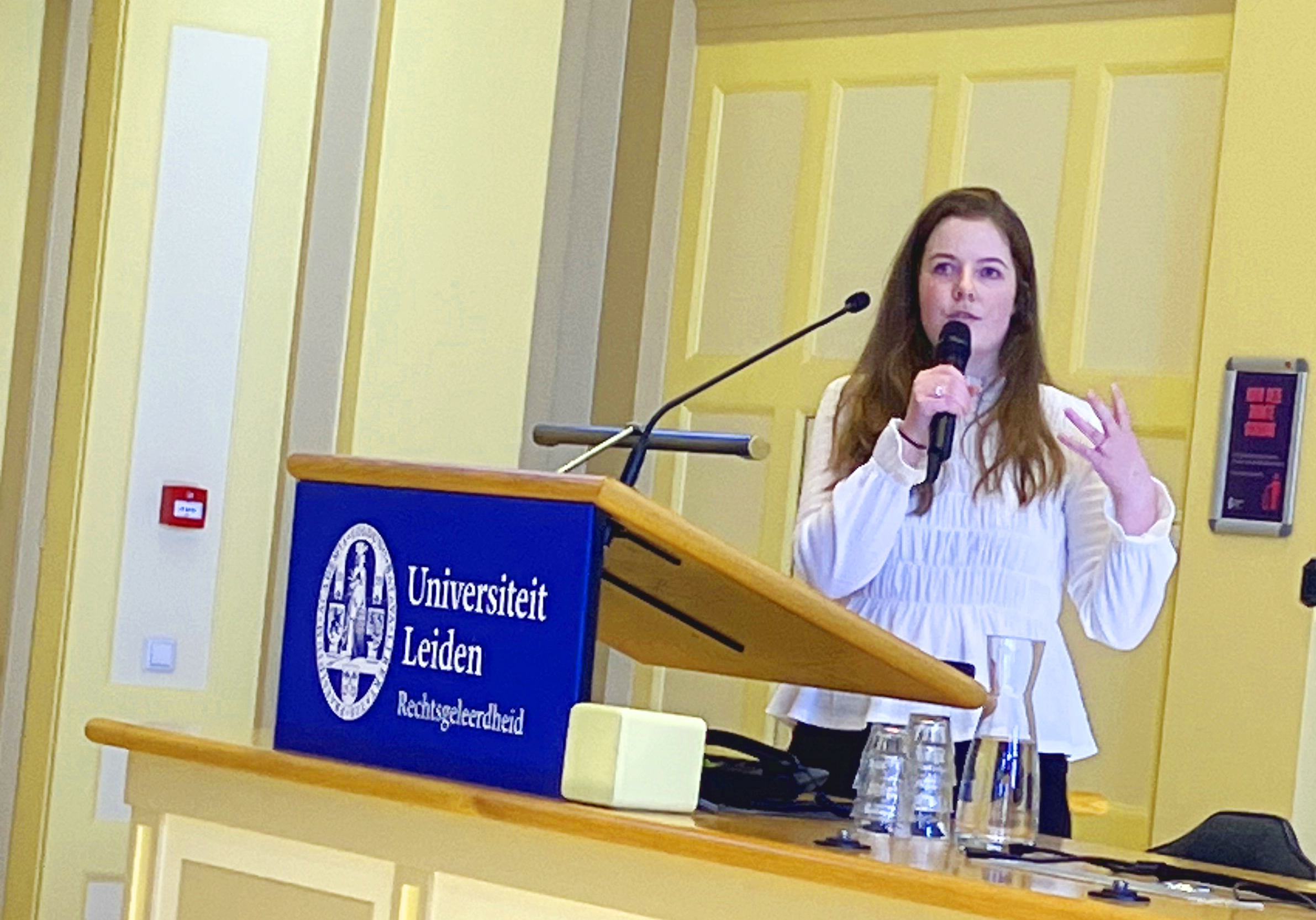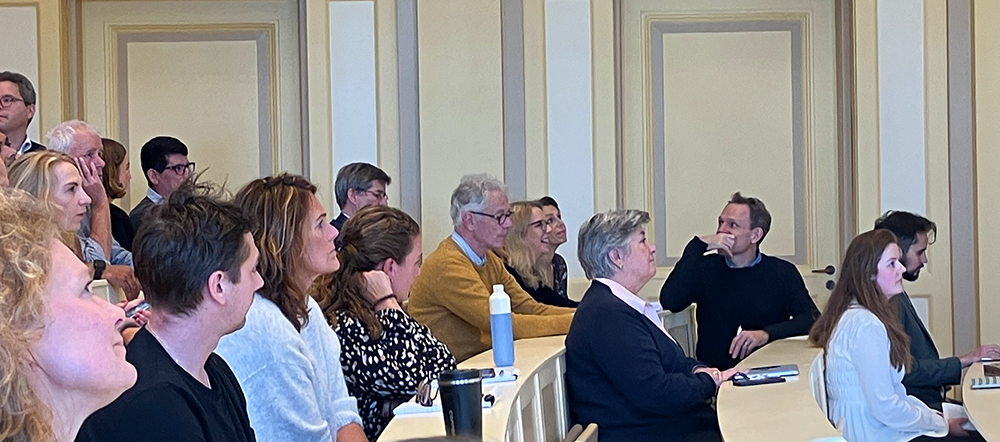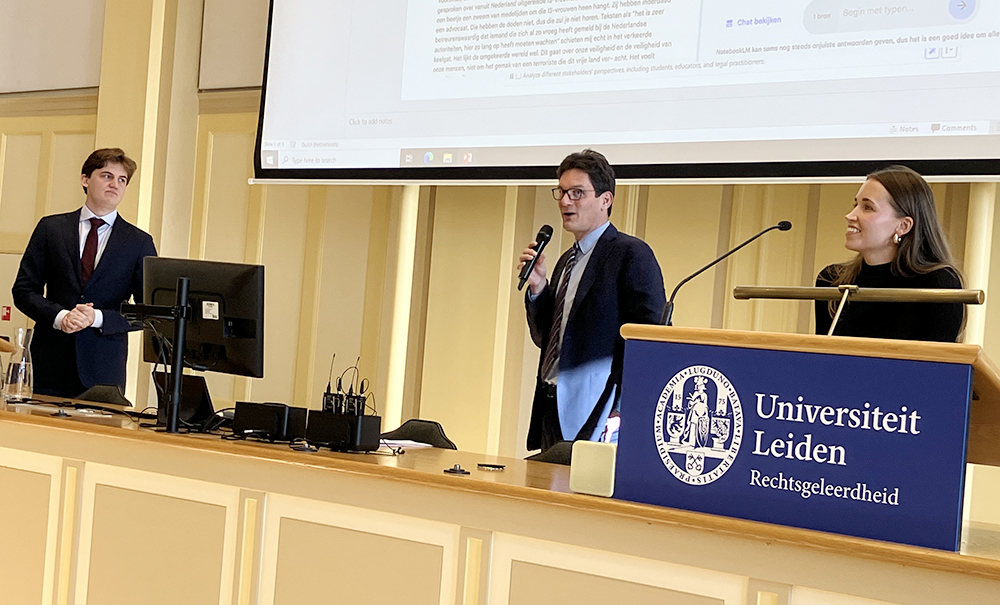
AI in legal education: key insights from the symposium
On Thursday 24 October, the ‘AI in legal education’ symposium was held at the KOG Building. This event brought together education professionals to discuss the role of artificial intelligence (AI) in legal education. Tycho de Graaf, Professor of Technology and Private Law, chaired the plenary programme and spoke on the increasing importance of AI within education. He highlighted how, with sufficient guidance from teaching staff, AI can help students develop important skills.

Perspectief van de student
Ingeborg Breel, student assistant at the ICT & Education department, explained how students can (and already frequently do) use AI technologies such as large language models (LLMs). In her experience, AI can support students by helping them structure and summarise their ideas. However, it should never replicate the content, as besides generating hallucinated (incorrect) texts, it is not supposed to replace students' writing and critical thinking skills. Ingeborg does use Magic it down, for example, which breaks down large issues into more manageable steps.
AI in Education working group
Manuel Galdames (LLInC) gave an update on the progress of the university-wide ‘AI in Education’ working group. Despite the availability of support and practical tools (such as storytelling, quizzes and activating teaching methods) to help teaching staff effectively apply AI in their teaching, there are a number of challenges in terms of privacy, ethics and safeguarding legal learning objectives. This working group is investigating how AI can be used across the various faculties and the guidelines required to ensure its responsible use. The guidelines are expected to be released in December 2024. In the meantime, teaching staff can refer to the university’s teaching support platform for guidance on using Chat GPT.
Lecture
Alexander de Wit and Femke Klaver discussed how the current academic climate encourages students to use AI tools. Due to limited contact hours and increased pressure to achieve good results, students feel they have no choice but to use AI in order to study efficiently. The speakers stressed how universities need to set clear frameworks to teach students how to formulate their own answers and think critically.
Breakout sessions: main takeaways
During the breakout sessions presented by Pien Leeuwenburgh (LLInC), Erwin Veenstra, Marco Correa Perez (LLInC) en Jeroen Leijen (ICT-O) participants had the opportunity to explore specific topics in more detail, in smaller groups. Below are some of the key takeaways from those sessions:
-
AI can make seminars and lectures more accessible and interactive, provided the learning objectives are factored in. Decide what you want to test students on and align the teaching method accordingly. It’s important to use a suitable assessment method as well. For example, avoid setting knowledge-based questions, standard conclusions and essay questions as homework assignments.
-
An LLM predicts text based on data but is not 100% accurate (resulting in hallucinated text).
-
Try out AI tools such as Chatgpt, NotebookLM, Copilot, Moondream and Whisper to find out how it can help you as a lecturer and how students can use it as well.

Conclusions
Several conclusions emerged from the plenary discussion:
-
AI can contribute to both the student’s and the lecturer’s learning process due to its ability to provide structure, summarise, come up with ideas, create images and give inspiration, for example.
-
It’s important to set clear boundaries and guidelines on using AI responsibly. A university framework is needed for this. It is good to note that this is currently being drawn up.
-
The faculty is wise to incorporate AI into the curriculum structure and education, and teaching staff also feel they would benefit from the opportunity to exchange examples and experiences.
-
Tomorrow’s lawyers need to be able to work with AI as they do with a legal code. After all, it is impossible to imagine the professional field without it nowadays.
-
Teaching staff are wise to experiment with AI tools such as ChatGPT and Copilot, so that besides improving their own efficiency, they recognise how it helps students.
The issue of whether teaching staff need to be able to outsmart AI so they can assess the accuracy of AI-generated information also came up during the drinks reception at the end of the event.
In light of the rapid growth of AI, this symposium will likely be remembered as the point when we became more aware of the huge impact of AI on our work, education and society as a whole, and when we explored ways to manage that.
-

Ingeborg Breel -

Manuel Galdames -

Workshop led by Pien Leeuwenburgh -

-

Left to right: Alexander de Wit, Tycho de Graaf and Femke Klaver
